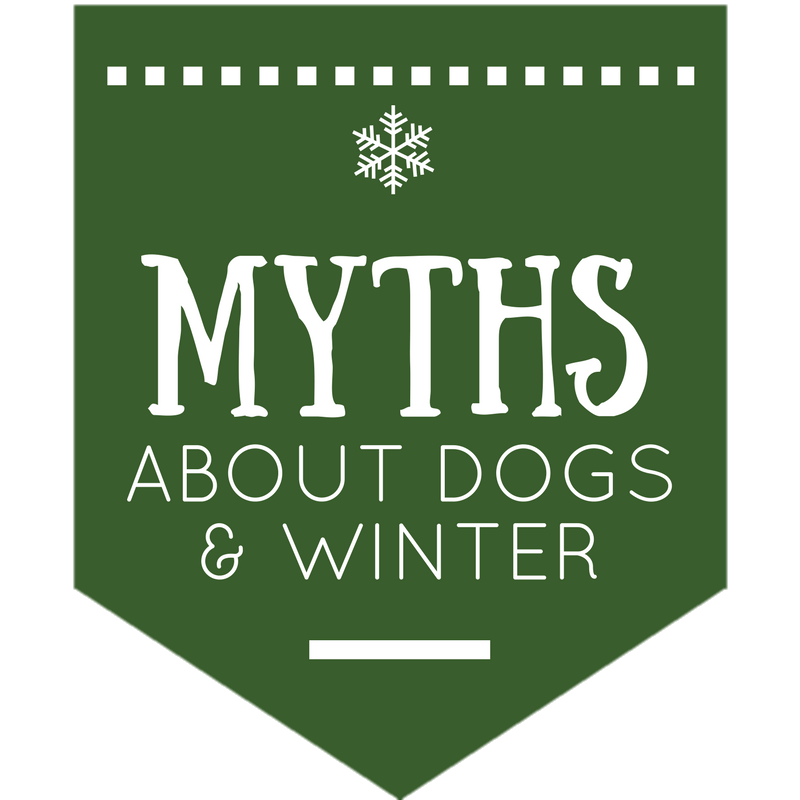Winter Dog Safety

We of course want to take the best care of our canine companions that we can, but when it comes to winter there are some things that we may not know or things that we’re just be plain mistaken about. Here are seven common myths related to our four-legged family members during this chilly time of year.
1. Dogs eating snow is no big deal.
Snow can actually hide a number of things such as garbage and other waste. It’s better to be safe than taking the chance of your canine companion ingesting something that could make them sick – or worse.
2. All dogs are protected from the cold by their fur.
While some breeds are definitely adapt to cold temperatures, just because a dog has a lot of fur does not mean that they will stay warm. Even dogs that thrive in cold weather, such as Nordic breeds, need time to adjust to the colder temperatures. Short, more frequent walks during winter are best for your furry family member. Not all dogs need some sort of coat or jacket, but young puppies, seniors and especially short haired dogs can all benefit from them as they as more susceptible to the elements.
3. No need to pick up after your dog in the winter. The waste will dissolve in the snow.
The winter weather actually slows down the biodegrading process and when spring rolls back around, those presents left behind will still be there. Waste can not only transmit disease from dog to dog, but can also attract unwanted critters and bacteria.
4. You don’t have to worry about fleas and ticks during the winter.
While they are not as “active”, fleas and ticks seek out warmth in the winter and it just so happens that our homes are frequently warm in the winter. This makes our homes a beacon for these parasites and unfortunately can leave our dogs, and cats for that matter, at risk. Keep up with your flea & tick prevention routines even during the colder months – it can make all the difference!
5. You know to keep an eye out for antifreeze – it’s green.
While green is the most common color associated with antifreeze, it is by far not the only one. Antifreeze can also come in orange, gold, amber, red, pink and blue as a few examples. When at home be sure that antifreeze is stored out of paws reach and when out and about be mindful of your surrounds for this toxic substance. It only takes a small amount of ingested antifreeze for your dog to become very sick or even lose their life.
6. Salt and deicing agents aren’t a problem as long as you keep your dog from eating off of or licking the ground.
While it’s of course good to keep your dog from directly eating or licking any of these substances, your dog unfortunately is not out of harm’s way yet. Cleaning off your dog’s paws is extremely important if there is even the possibility that they could’ve come into contact with any undesirable substances as they could lick their feet and ingest them.
7. Dogs are less likely to get dehydrated in the winter.
Keeping your dog hydrated during the winter is just as important as it is the rest of the year. Even if they do eat snow, despite your best efforts, it certainly does not contain enough moisture to keep them hydrated.
Information Sourced From: pets.webmd.com, dogtime.com, akc.org, dogsnaturallymagazine.com
